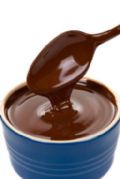|
We've all seen the flashy cans of energy drinks crowding the shelves at gas stations and grocery stores. From students to sports stars, it seems everyone has used an energy supplement to up their game at some point. But what exactly puts the "energy" in energy drinks? Are these popular drinks truly miracle elixirs, or are the ingredients on the label just marketing ploys to make us buy glorified cans of caffeinated sugar? Some energy drinks have slightly different formulas than others, but most contain similar ingredients. Here are some examples of these ingredients and what type of energizing benefits they provide (if any!): Bee Pollen: Although it contains small amounts of vitamins, minerals and amino acids, bee pollen has not yet been proven to increase mental or physical energy. Herbalists tout the supplement as a cure for allergies, stomach problems and even alcoholism, but these claims also remain unsubstantiated. Carnitine: Carnitine is a vitamin-like compound that plays a critical role in energy production in the body. The liver and kidneys usually make a sufficient amount of carnitine to carry out these roles, so there is generally no need to supplement with a carnitine-infused energy drink. Plus, there is absolutely no evidence to confirm that carnitine supplementation improves mental or physical performance. Taurine: Taurine is an essential amino acid that is readily available in meat and fish. If you eat meat and/or fish, chances are your taurine needs are more than covered. Like carnitine, it is normally synthesized in the human body in adequate amounts, so few people would ever need to supplement for it. Preliminary research suggests that taurine, in combination with caffeine, can produce minor improvements in attention and verbal reasoning, but it does not seem to have any effect on memory. Ginkgo and Panax Ginseng: Studies show that ginkgo extract may cause very modest improvements in memory and the speed of cognitive processing. The extract has been known to negatively affect blood sugar levels in people with diabetes, and also exacerbates bleeding disorders. Some evidence suggests that a combination of Panax Ginseng and Ginkgo is effective for enhancing memory, and the combination might be more effective than either product alone. However, you’ll pay the price for your memory boost: Panax Ginseng commonly causes insomnia as well. Milk Thistle: Silymarin, an antioxidant, is the active component of milk thistle seeds. Preliminary research indicates that milk thistle may protect against kidney, liver and prostate disease; however, there is no evidence that it improves mental or physical performance. Sugar: Most energy drinks are loaded with sugar; some brands have over 60 grams in just one can—that's equivalent to 14 teaspoons! Sugar is a fast-digesting carbohydrate that can provide a quick energy "high," but it doesn't last long. Energy levels plummet after the initial sugar rush wears off, often leaving behind a headache. Most people consume way too much sugar anyway, so drinking additional sugar in the form of energy drinks probably isn't a good idea. Extra Vitamins: Many energy drinks boast up to 8,000 percent of our daily value for many B-vitamins and vitamin C. Certainly, vitamins are good for the body. B-vitamins help you produce cellular energy and metabolize your food. Vitamin C is also extremely beneficial, as it boosts immune function. However, what the can doesn't say is that the body isn't able to absorb these vitamins in such excesses, and will end up excreting most of them through urine. The addition of excessive vitamins in energy drinks only serves one purpose: to make the drinks seem healthier so people will buy them! You’re better off taking a multivitamin to get your nutrients without all the added sugar and chemicals of an energy drink. Cola (Kola) Nut, Guarana (Guarana Extract, Guarana Seed Extract) and Mate: These ingredients may sound like exotic "superfoods," but the fancy names are all just code for the source of one common ingredient: caffeine. Caffeine stimulates the central nervous system, heart and muscles, and can provide short-term relief of mental and physical fatigue. It has also been found to increase vigor, improve reaction times and stave off exhaustion during prolonged endurance physical activity, but not so much during shorter-duration exercise such as sprints. In fact, the jury is out whether ingesting caffeine before a workout or athletic event is healthful or not. Caffeine is a controlled substance in sports, and athletes can be disqualified for excessive intake (800 milligrams or higher). Some energy drinks can contain up to 207 milligrams of caffeine, which is comparable to two or three average cups of coffee. Above this level, the energizing properties of caffeine taper off, and adverse effects such as nervousness, gastric problems, increased blood pressure, irritability and insomnia start to kick in. Many people believe that the more caffeine they drink, the more energized they will be; it's common to see a college student pound down several energy drinks in a single study session, and then crash hard later on. After taking a look at the ingredients in most energy drinks, it's obvious that they don't really contain many "energizing" properties. Then again, placebo effects can be very powerful. If you believe it will energize you, it just might—even if the research says otherwise. That said, let's summarize the facts:
The bottom line? Don't waste your money on these overpriced, over-hyped cans of scam. Do what you can to get adequate rest and eat a well-balanced diet to provide your body with all the vitamins and amino acids it needs. If you really want a beverage to boost your energy, sip an antioxidant-packed cup of tea instead. |








